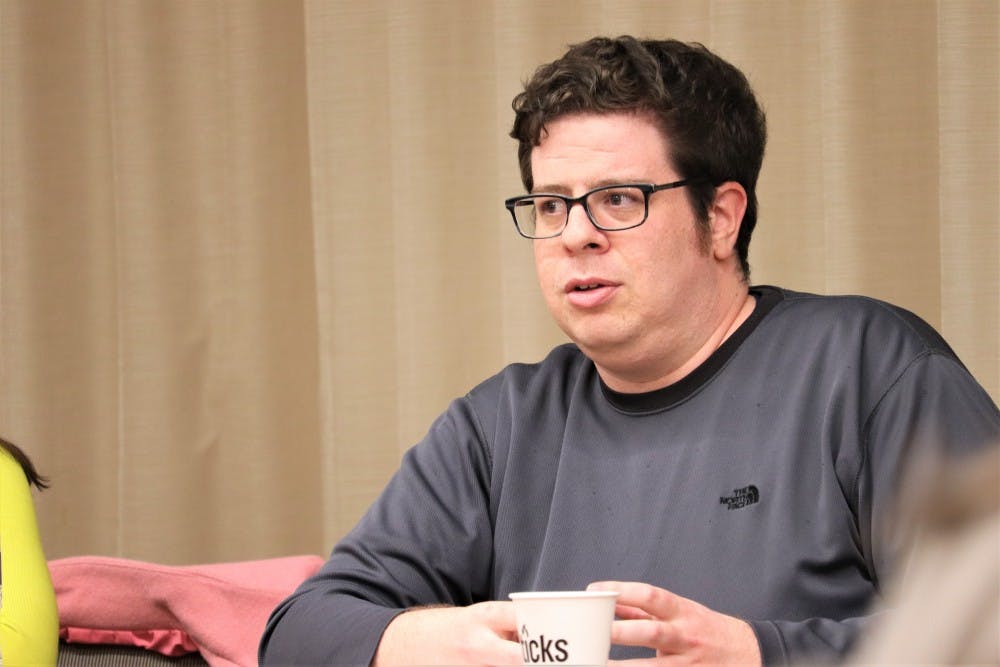The Honor Committee passed a bylaw change to include certificate-seeking students in credit-granting programs as part of the eligible population for Honor representatives during their meeting Sunday evening.
The Honor bylaws use the term “degree” in context of both sanctioning and eligibility to serve on the Honor Committee. The bylaw change altered the definition of “degree” to include credit-granting certificate programs, thereby placing these students under the purview of the Committee and allowing them to run for representative office.
In the bylaw definition addition proposal, the new legal language defines a degree as “any undergraduate or graduate degree at the University, including those offered by the University’s professional schools. Degree shall also encompass credit-granting certificate programs, that lead to a credential issued by the University, as defined by the Office of the Executive Vice President and Provost.”
Originally, the bylaw change was proposed by Lucian Mirra, School of Continuing Professional Studies representative, to enable more students in the SCPS to represent their school on the Honor Committee.
Of the 829 students currently enrolled in the SCPS, 26.5 percent are degree-seeking and therefore officially eligible for Honor Committee representative positions. The 31.5 percent of SCPS students who are certificate-seeking students in credit-granting programs will now also be eligible for these positions.
Though it was not mentioned at the Honor Committee meeting, the SCPS recently announced an approximately 50 percent decrease in faculty and staff due to decreased student enrollment. The workforce reduction will be complete by May 20.
However, the SCPS largely offers degree programs for undergraduate students, so the current bylaws previously excluded many graduate student representation from the SCPS.
As stated in last Sunday’s meeting agenda, the purpose of the proposed bylaw change was to “empower additional SCPS students to become more involved with Honor. It has traditionally been difficult to get elected representation for the school as evidenced by recent SCPS members being appointed.”
After concerns were expressed for more inclusive language last week, the proposal was rewritten to broaden the definition of “degree-seeking” to include certificate-seeking credit-granting programs. Committee members saw no need to restrict the eligibility certificate-seeking students to just the SCPS when other schools also housed similar programs.
Law representative Lindsay Fisher commented on the necessity for this proposal.
“Historically it’s been really challenging for us to fill positions for SCPS reps on Committee, and we think maybe we’ve identified something that will help with that,” Fisher said. “It also represents potentially a broader gap in the Honor Committee’s reach and scope in representation.”
If there are vacancies on the Honor Committee, the task of filling the vacant seat first falls to the individual school, and then to a University Board of Elections special election. If both of these methods fail, the Honor Committee approaches students in long-term programs interested in Honor and considers them for appointment.
“All SCPS students, whether enrolled in degree or certificate programs, are held to the same Honor standards as on Grounds students,” the agenda states. “By adding certificate programs to the Bylaw requirements for being a representative the Honor Committee, it would formalize the ability of a student in on of these programs to be involved with Honor, as well as increase the available pool for possible representatives.”
Mirra commented similarly on the difficulty of finalizing SCPS representation on the Honor Committee.
“Generally SCPS has been underrepresented or it’s been difficult to get representatives for the position,” Mirra said. “There’s been lots of people appointed for the school.”
Though the official language in the Honor Constitution’s bylaws used to only mention degree-seeking students, this stipulation was sometimes disregarded due to ambiguity. Mirra is one example — he is currently enrolled in a certificate program at the SCPS. It is unclear how Mirra became an SCPS representative, and Mirra and Ory Streeter — a Medical student and Committee chair — did not return request for comment.







